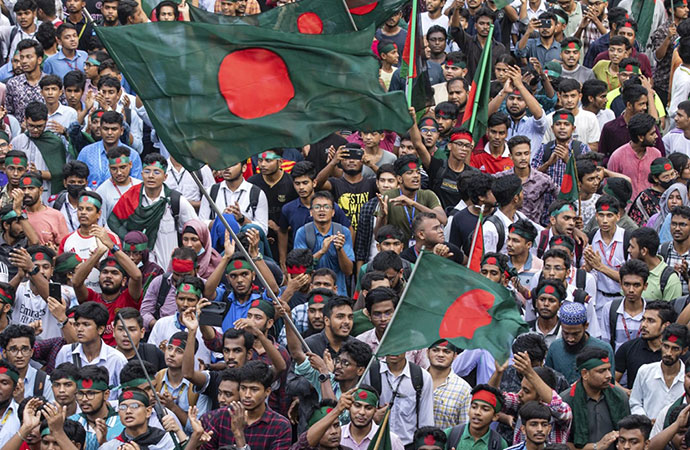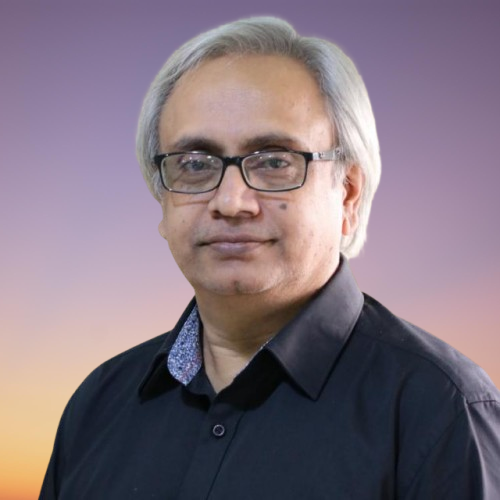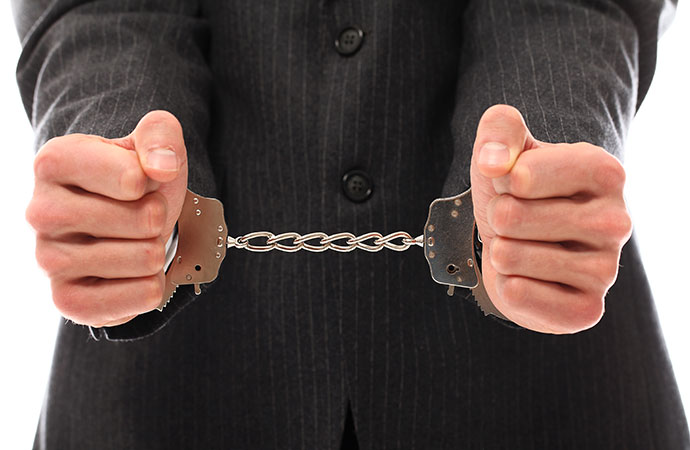Column

Photo: AP/UNB
Elections are the cornerstone of democracy, and Bangladesh, like many other nations, aspires to uphold the ideals of free and fair electoral processes. But this has rarely been the case. Following the fall of the Sheikh Hasina regime on August 5, 2024, an interim government led by Dr Muhammad Yunus has been in place, vowing to build a new Bangladesh through a just and transparent election. As the nation prepares for its 13th national election, likely in December 2025, a pressing question emerges: how much is democracy truly costing the country?
In a recent announcement, the Election Commission (EC) of Bangladesh revealed that it has sought an astronomical Tk 2,794.55 crore for organising the 13th national election. This figure is only for election management and law and order, a massive expenditure when compared to the national budget.
While the Commission admits that the final amount may vary depending on the political climate and the circumstances surrounding the elections, the current projection paints a striking picture of the financial burden placed on the nation for just one electoral cycle. Even though Bangladesh is a nation striving for political stability, the consequences of these elections on the economy and governance cannot be overlooked.
A History of Costly Elections
The cost of elections in Bangladesh has risen sharply over the years. The 12th national parliamentary election, held on January 7, 2024, already set a significant precedent. Initially, the EC estimated that the election would cost around Tk 15 billion, but that figure later surged beyond Tk 20 billion. The elections of 2014, 2018, and 2024, collectively, have cost Bangladesh more than Tk 10,000 crore - a staggering sum when you consider the country's GDP and the resources required for other critical sectors like healthcare, education and infrastructure. While these so-called elections had been touted as "milestones for democratic continuity", the overwhelming costs have not translated into the stable democracy the people of Bangladesh have long hoped for.
The Growing Expenditure of Electoral Campaigns
Campaign spending, particularly for political parties fielding a significant number of candidates, has also seen sharp increases. For example, the Awami League candidates in the 12th national election had spent an average of more than Tk 28.6 million (Tk 2.86 crore) on their campaigns, well above the Tk 5 million (Tk 50 lakh) limit set by the Election Commission. This is nearly six times more than the allowed limit, highlighting the unsustainable nature of electoral campaigns in the country. Such excessive campaign expenditures come at a time when millions of citizens are struggling with poverty, high inflation and economic uncertainty.
What Does This Mean for Democracy?
Despite the soaring costs of elections, Bangladesh has not been able to achieve true democratic governance. The multiple elections held in recent years - especially in 2014, 2018 and 2024 - were fraught with allegations of unfair practices, voter suppression and violence. In fact, the Awami League government had always been accused of manipulating the election process, undermining democratic principles, and consolidating its hold on power by using state machinery. The growing cost of these elections, alongside claims of voter manipulation, has led to widespread disenchantment among the public.
The current political climate is also far from stable. With the country embroiled in political turmoil, marked by mass protests, student movements and widespread discontent, many citizens are questioning whether holding elections at such high costs is truly beneficial. Political parties, particularly the BNP, are demanding immediate elections. Meanwhile, the interim government has indicated that elections might be held in late 2025.
The deep political polarisation in the country means that the electoral process often becomes a contest between political elite rather than a genuine effort to reflect the will of the people. And while the price tag of these elections continues to climb, the core promise of democracy - that the will of the people shapes the direction of the nation - remains compromised.
Election Costs Versus Governance Priorities
The costs of conducting elections go beyond the financial expenditures of the Election Commission and political campaigns. The money spent on organising law enforcement and maintaining security during elections is another hidden cost that strains government resources.
According to the EC's recent request, a substantial portion of the budget will be allocated for maintaining law and order during the election process. This is a necessary measure, but it further highlights the extent to which elections in Bangladesh are tied to political instability and violence.
As street unrest continues to plague the nation, the allocation of large sums for elections means that vital government spending on education, healthcare, and infrastructure often takes a backseat. When the country is forced to spend billions on holding elections, there is less room to invest in crucial areas that affect the daily lives of citizens.
The fact that these elections do not seem to yield lasting political stability raises concerns. For Bangladesh, the question is whether the cycle of costly elections and political upheaval will ever come to an end. Can the country afford to continue spending such large amounts of money on elections, especially when they do not always lead to improved governance or long-term stability?
The Case for Political Reform
Many experts and political leaders, including Major (retd) Hafiz Uddin Ahmed of the BNP, argue that the only way to establish peace and order in Bangladesh is through a neutral and fair election process. According to Hafiz, only an elected government that democracy is not only preserved but also strengthened. He emphasises that the legitimacy of the government stems from the people's choice through free and fair elections, which are essential for fostering trust in the political system.
While the financial burden of holding elections is a reality, the real cost to democracy is the lack of transparency and accountability in the election process. Bangladesh must tackle the root causes of political instability - corruption, unfair practices and excessive partisanship - rather than simply increasing the financial expenditure of future elections.
Political reforms that focus on an unbiased electoral commission, a more inclusive political process, and stronger checks and balances are urgently needed. By prioritising these reforms, Bangladesh could ensure that the next round of elections is more transparent, cost-effective and truly reflective of the people's will. Such reforms would reduce the potential for political violence, ensure greater participation from opposition parties and ultimately lead to a more stable and prosperous democracy.
The High Price of Democracy
The financial costs associated with elections in Bangladesh are unsustainable. While elections remain a fundamental aspect of democratic governance, the increasing costs of managing, securing and running them are taking a toll on the nation's economy and social fabric. In a country where millions are struggling with economic hardship, spending billions on elections - only for them to result in further political division and disillusionment - seems counterproductive.
The people of Bangladesh have long awaited a democracy that delivers not just in terms of elections but also in governance. The democratic ideals that were supposed to be realised after the country's liberation in 1971 have not been achieved due to continued political instability, corruption and the lack of true democratic initiatives. As Bangladesh prepares for the 13th national election in 'December 2025', it faces an important crossroads: will it continue to spend heavily on an electoral system that doesn't guarantee stability, or will it invest in long-term reforms that ensure democracy is not only in name but also in practice?
Ultimately, if the political leaders of Bangladesh are committed to serving the people, they must shift their focus from merely holding elections to ensuring that those elections lead to meaningful, inclusive and sustainable governance. For this, the country must prioritise political reforms and explore ways to reduce the immense costs associated with electoral cycles. Only then can Bangladesh truly achieve the promise of democracy - a democracy that is not only beautiful but also affordable for its people.
Mahfuzur Rahman is Editor of UNB.

























Leave a Comment
Recent Posts
Pedaling Through the Mangroves ...
The journey from the bustling streets of Barishal to the serene, emera ...
Why the Interim Government mus ...
Two weeks out from what is expected to be a red letter day in the figh ...
Doesn’t matter who thinks what about Bangladesh deci ..
The Other Lenin
US President Donald Trump said his administration
Govt moves to merge BIDA, BEZA, BEPZA, MIDA